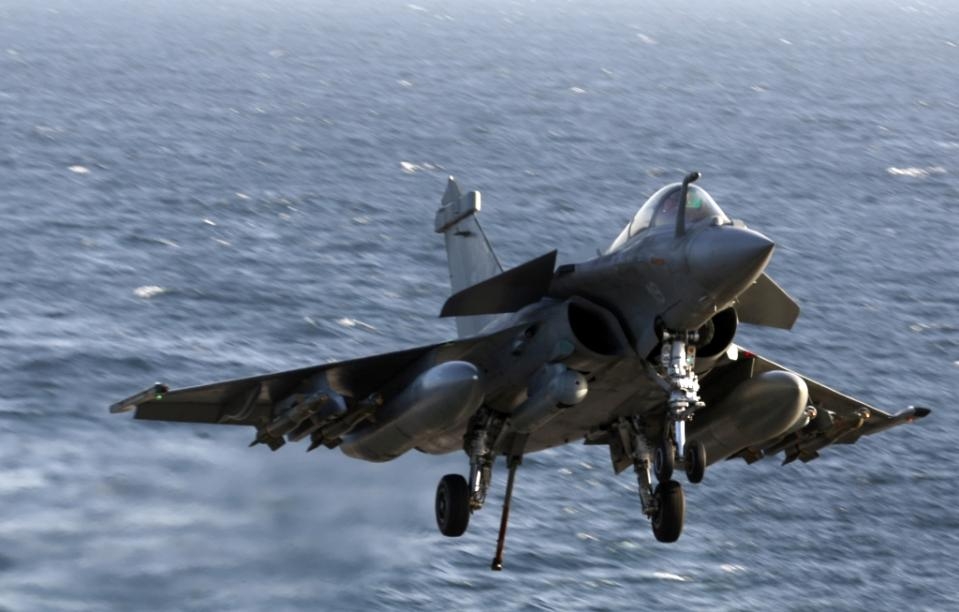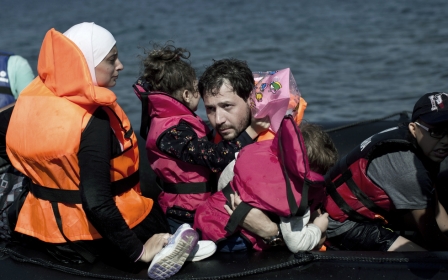France carries out first air strikes on IS in Syria
France has bombed Islamic State group targets in Syria saying they will strike 'any time our national security is at stake'

This handout picture released on September 8, 2015 shows a French army Rafale fighter (AFP)
Published date: 27 September 2015 11:06 BST
|
Last update: 9 years 1 month ago
France said Sunday it had carried out its first air strikes against the Islamic State group in Syria following nearly three weeks of surveillance flights.
The office of President Francois Hollande said the strikes were aimed at targets identified during surveillance missions conducted since 8 September.
The operation to "fight the terrorist threat" of IS was coordinated with regional partners, a statement said.
"We will strike any time our national security is at stake," it said.
In an announcement earlier this month, France cited self-defence as its rationale for planning the strikes, while ruling out ground operations.
French planes are already involved in air strikes against the militants in neighbouring Iraq.
The announcement of the strikes in Syria comes the day before Hollande joins world leaders for the start of the UN General Assembly in New York, where the four-year Syrian war is expected to be at the centre of debate.
Sunday's statement from the French presidency called for a "comprehensive response (to the) Syrian chaos", saying: "Civilian populations must be protected against all forms of violence, that of Daesh (IS) and other terrorist groups, but also against the murderous bombings of (Syrian President) Bashar al-Assad."
Iran and Russia have given strong backing to Assad, whom the United States and European countries such as France see as the instigator of a civil war that has left 250,000 dead and large parts of his country in the hands of IS.
Russia meanwhile has rankled the West by strengthening its military presence in Syria in recent weeks.
Ahead of the UN gathering, US Secretary of State John Kerry met with Iranian counterpart Mohammad Javad Zarif on Saturday to discuss Syria.
Washington refuses to accept a peace process that would leave Assad in power and so has backed and armed small "moderate" rebel groups.
But that strategy appeared in tatters after the Pentagon admitted the latest US-trained fighters to cross into Syria had given a quarter of their equipment to Al-Qaeda.
New MEE newsletter: Jerusalem Dispatch
Sign up to get the latest insights and analysis on Israel-Palestine, alongside Turkey Unpacked and other MEE newsletters
Middle East Eye delivers independent and unrivalled coverage and analysis of the Middle East, North Africa and beyond. To learn more about republishing this content and the associated fees, please fill out this form. More about MEE can be found here.




